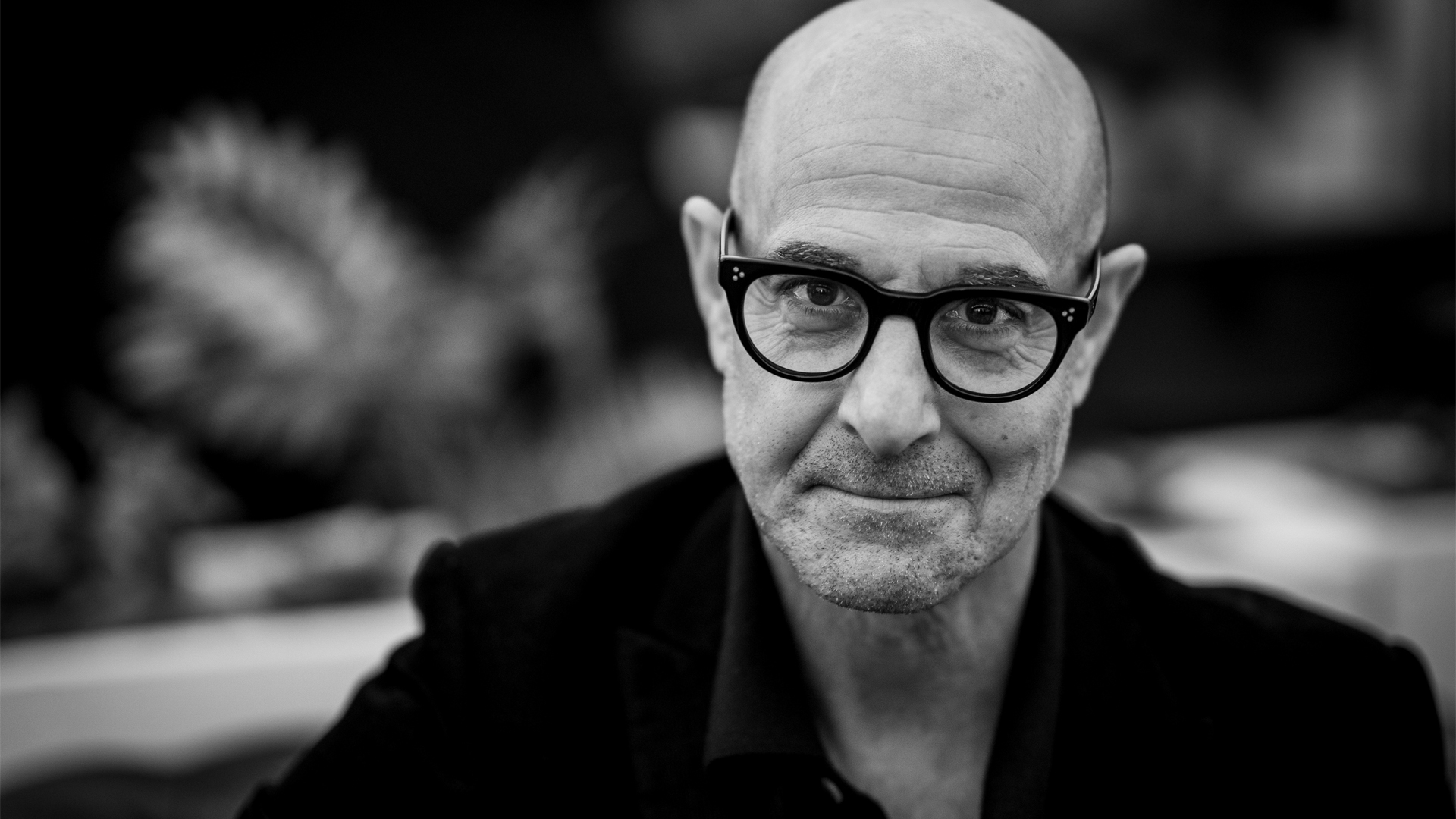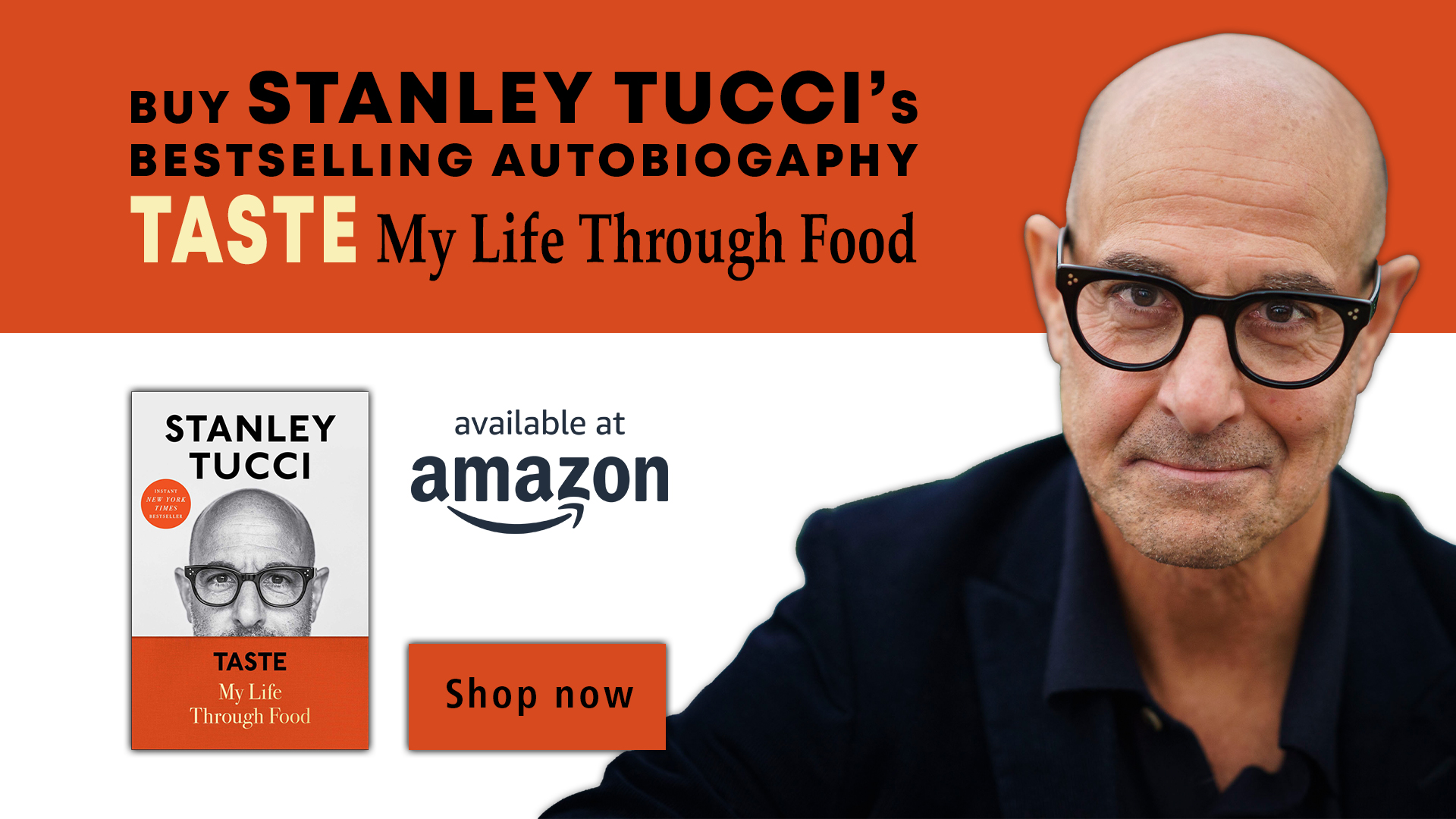Italian American actor and screenwriter Stanley Tucci introduces himself as "Italian on both sides" during the introduction of his CNN documentary series Searching For Italy. His memoir, Taste: My Life Through Food, is a loving testament to his Italian heritage, and a celebration of the food of Italian American culture.
Tucci has starred in epic franchise films from Marvel and the Hunger Games, but also in smaller films, especially where food has been the focus. He played Paul Child, husband of Julia Child in Julie & Julia, a blog-to-book-to-film project following Julie Powell's attempts to cook every Julia Child recipe within a year. He also wrote and starred in Big Night, the story of two Italian brothers operating a restaurant down at the Jersey Shore.
Taste chronicles his experiences from growing up in an Italian American household in Westchester County, New York, through the COVID lockdowns in London where he lives with his wife and children. In it, he shares behind scenes look at the food on film sets, personal anecdotes about bonding with his wife over their love of food, and reflects on growing up as an Italian American.
1. Italian Film Sets Don't Provide A Great Breakfast, But There's Wine At Lunch
Film productions provide actors and crew with on-site catering. The quality varies from set to set, largely dictated by budget, but also by local custom. Catering often is run on a shoestring budget and must feed dozens of staff with a variety of dietary needs during short break periods. While Tucci loves eating in Italy, he's less excited about eating on Italian film sets. At breakfast, Americans might have omelet stations. In Germany, he had his fill of meats and cheese. But the Italians? Their breakfast spread consisted mainly of cream-filled pastries and black coffee. On the upside, at least the Italian catering includes wine with lunch.
His advice on surviving film sets just about anywhere though that the makeup trailer will have the best coffee because the makeup artists usually outfit their space with good machines. However, even if they haven't, these days, Tucci brings two Nespresso machines to set, one for the makeup department and one for his trailer, ensuring he has a steady supply of espresso shots.
2. Timpano from Big Night Was a Tucci family Holiday Tradition.
The cult favorite film Big Night tells the story of two Italian brothers operating a restaurant. They aren't having much luck with customers who all want red sauce classics rather than the more traditional northern cuisine the two brothers cook. So they plan a big night for the restaurant, a make-or-break moment where they hope to enchant customers and an important food critic to reverse their fortunes. They decide to make the ultimate feast by cooking up a timpano. Baked in a giant pot, the dough-encrusted dish includes pasta, boiled eggs, sausage, sauce, and more.
Tucci, who also wrote the screenplay. He knew the film required a show-stopping recipe, so he added in the timpano, a dish he had regularly cooked for holidays with his family. Preparing the timpano for holidays like Christmas was a herculean effort. In the film, the timpano goes over well with the dinner guests who applaud him for the secret recipe.
3. Tucci's Family Says Goodbye Just Like Your Family.
Anyone in an Italian American family probably knows about the "Italian Goodbye" – when a house guest announces their imminent departure but then sticks around for a few more glasses of wine while repeatedly saying goodbye to everyone two or three times. Stanley Tucci recalls the very same thing from his childhood.
In a vignette written like a film script with dialog and stage directions, Tucci relives just such a scene. His family is ready to leave his grandparents' house. His parents banter about how much wine his grandfather poured for his father. His grandmother keeps handing his mother more tomatoes from the garden insisting she takes them all. They get up to leave the house, but then they don't. More bickering. The scene is likely a familiar one to Italian Americans of any age, and it's relatable moments like this that help Tucci connect to readers.
4. Tucci almost lost his sense of taste.
After having off-and-on pain in his mouth, a doctor diagnosed him with cancer. The tumor was located on his tongue and threatened not just his love of food, but his career as an actor. The large growth could have disrupted his ability to speak. By then he had already lost his first wife to cancer, and when he began treatment, his second wife was pregnant.
Radiation to shrink the tumor took away his sense of taste and smell. He lost his appetite, too. The food that once brought him joy now disgusted him. It didn't stop him from watching cooking shows during his hospital stays though.
Since then, his taste buds have begun to recover. His ability to eat solid food has been restored. And one bonus that came out of the ordeal is that many of the problems he previously had with allergies, sugar, and gluten were reset when he couldn't eat anything except chicken broth.
5. Tucci Learned to Make a Perfect Frittata for the Final Scene of Big Night
At the end of the film, Secondo cooks up a frittata for himself, his brother, and their assistant. Tucci wanted the scene to be shot as a single take without any edits or cuts between cameras. This type of long, single-camera shot is particularly challenging because mistakes can't be edited out in post-production. If an error is made, the only way to fix it is to stop, reset, and start over.
The five-minute scene wasn't easy to shoot. Since the film is a period piece set in the 1950s, the prop department supplied Tucci with an appropriate pan. Unfortunately, that meant no Teflon or other non-stick coating. During rehearsal, the egg kept sticking to the pan. Tucci realized he'd have to perfect his frittata-making. Finally, he found another aluminum pan from the props department and after a few more rehearsals, he could cook the frittata without it sticking. The film crew shot the scene seven times, restarting only twice. He says he doesn't know which of the five successful takes ended up in the final cut.



